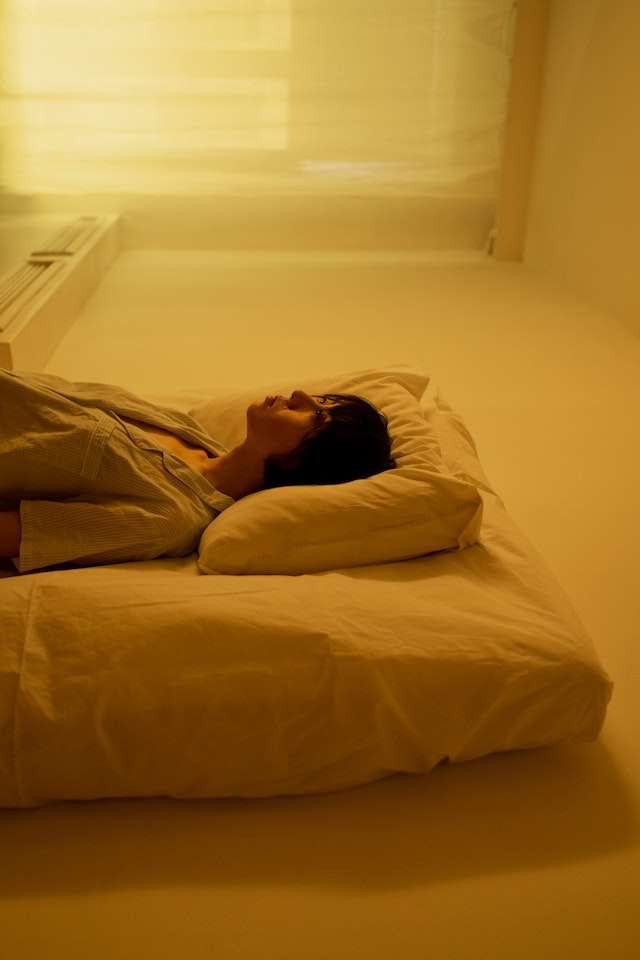Welcome to wikilifestyles.com
Introduction: 7 Foods You Should Avoid At Night
Nowadays, it seems like everyone has trouble getting enough sleep. You shouldn’t have any extra obstacles in the way of getting a restful night’s sleep, even if you don’t have a sleep condition. Healthy eating, thoughtful supper, late-night snack selection, and regular exercise are all parts of excellent sleep hygiene.
What foods should you exclude from your evening routine, then? In general, you should consume fewer stimulants, difficult-to-digest foods, very sweet or spicy foods, and items that make heartburn worse.
This post will go through the seven foods to stay away from in order to obtain a good night’s sleep.
Ice Creams and other Dairy products :
Ice cream consumption at night may cause weight gain and disrupt sleep, ice cream’s high sugar and fat content have been shown to increase blood sugar levels, which can make it more difficult to fall asleep.

Additionally, eating dairy products right before bed can give you indigestion and other discomforts that make it hard to sleep. For these reasons, it’s frequently advised to steer clear of ice cream in the evening.
Citrus fruits Known for having an acidic flavors :
Lemons, Limes, Oranges, Grapefruits, Tangerines (also called mandarins), Clementine’s, Kumquats, Pummelos, Bergamot oranges, Key limes. Some people have acid reflux and heartburn after eating citrus fruits late at night. Because of their natural acidity, these fruits may irritate the esophagus and stomach, resulting in symptoms like heartburn and indigestion. Citrus fruits’ acidity can also make it uncomfortable to swallow and induce mouth and throat pain, which makes it difficult to fall asleep. Citrus fruits should not be consumed in the evening or close to bedtime because of this.
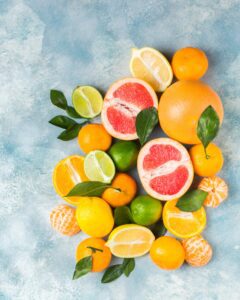
A naturally occurring substance called tyramine is present in several meals, such as citrus fruits. Tyramine can release norepinephrine, a neurotransmitter, and hormone that can influence mood and alertness. According to several research, eating tyramine-rich foods late at night may cause insomnia and disrupted sleep.
The effects of tyramine on sleep are still not fully known, but it’s crucial to keep in mind that the amount of tyramine in citrus fruits is typically thought to be modest. However, it’s advisable to avoid citrus fruits before bed if you find that they are keeping you up at night.
Tomato sauce or Tomato ketchup :
Like many other tomato-based products, tomato sauce and ketchup have significant amounts of acidity and may give some people heartburn and acid reflux. The stomach may become irritated by tomatoes’ acidity, resulting in sensations like heartburn and indigestion that can make it difficult to fall asleep. In addition, a lot of tomato-based products have significant salt and sugar content, which might raise blood sugar levels and make you feel alert.
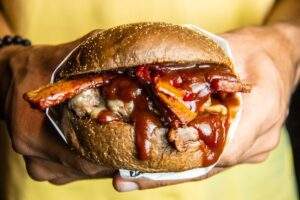
The presence of caffeine, a stimulant that can interfere with sleep, in tomato sauce and ketchup is an additional factor. Caffeine can disrupt the body’s normal sleep cycles, making it more difficult to fall asleep and stay asleep.
Tomato sauce and tomato ketchup shouldn’t be consumed at night, especially if you are prone to acid reflux or heartburn.
Cheese :
Several problems that can interfere with sleep can result from cheese consumption at night. One cause of discomfort and indigestion is that cheese has a high-fat content and can be challenging to digest. This can make it challenging to go sleep and stay asleep because indigestion’s discomfort and acid reflux can keep you awake at night.
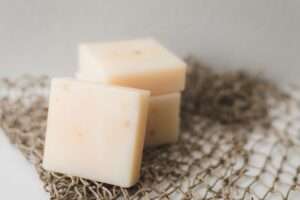
Another reason is that some cheeses, such as aged or fermented cheeses, have significant tyramine concentrations. Norepinephrine, a neurotransmitter, and hormone that can influence mood and alertness, can be released as a result of the naturally occurring substance tyramine. Tyramine-rich foods should be avoided after dinner to prevent insomnia and restless sleep.
It’s also important to remember that cheese has a lot of calories, and eating a lot of calories late at night might lead to weight gain and other health problems. in general, it’s best to steer clear of cheese at night, especially if you have indigestion or difficulties falling asleep
In addition, the tyramine found in various kinds of cheese, such as cheddar and Swiss, reduces the quality of sleep.
Wine, beer, and other alcoholic drinks :
Drinking wine, beer, or other alcoholic beverages late at night can have a variety of effects on sleep. Alcohol is a central nervous system depressant, which means that it can slow down brain activity and make it more difficult to fall asleep. This is one of the main causes. Additionally, drinking alcohol can disturb the sleep cycle, which reduces the quantity of deep sleep and increases the number of nighttime awakenings.

Dehydration brought on by alcohol might also result in disturbed sleep and more frequent bathroom visits. Additionally, alcohol can raise body temperature when it is metabolized by the body, which can make it more difficult to cool off and go to sleep.
Additionally, consuming alcohol before bed might cause respiratory problems like apnea and snoring. As a result, you can experience restless nights and fatigue during the day.
These factors make it generally advised to refrain from drinking wine, beer, or other alcoholic beverages until at least a few hours before going to bed in order to achieve a decent night’s sleep.
The quality of sleep is further hampered by the presence of tyramine in various beers, particularly tap or home-brewed varieties, vermouth, red wine, sherry, and liqueurs.
Junk food like pizza, and burgers :
Eating high-fat, high-calorie junk food at night can have a variety of negative effects on sleep.
One explanation is that some foods may be hard to digest, which may result in indigestion, this can make it challenging to go sleep and stay asleep because indigestion’s discomfort and acid reflux can keep you awake at night.

Another explanation is that eating these meals may result in a blood sugar rise, which can make you feel alert and make it more difficult to fall asleep. Additionally, eating high-fat foods right before bed might raise body temperature, making it more difficult to wind down and get to sleep.
Furthermore, junk food frequently has high levels of salt and sugar, which can induce water retention and make it difficult to fall asleep because you’ll feel puffy.
For these reasons, it is typically advised to stay away from high-fat, high-calorie items like pizza and burgers in the hours before bed to ensure that you get a decent night’s sleep.
Masalas and spices :
Spices and masalas can have a variety of negative effects on sleep. One significant factor for this is that many spices and masalas include substances known as capsaicinoids , which can raise body temperature and make it difficult to calm down and go to sleep. It can also be challenging to fall asleep and stay asleep because many spices and masalas are known to be irritants and can lead to heartburn, indigestion, and acid reflux.
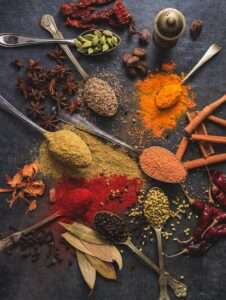
Dehydration brought on by spicy meals might also result in restless sleep and more frequent bathroom visits.
Another factor is that some spices and masalas are known to have stimulant qualities, which might make it more difficult to get to sleep and stay asleep. These spices include cayenne pepper, ginger, and black pepper, as examples.
To ensure that you have a decent night’s sleep, it is typically advised to avoid having masalas and spices, especially the spicy ones, close to bedtime.
Conclusion :
Eating at night is a common habit that can cause sleep disruption and weight gain. This article discusses foods to avoid at night in order to promote better sleep and a healthy weight.
High-fat and spicy foods, caffeine, alcohol, and sugary snacks are all foods to avoid at night. These foods can cause acid reflux, heartburn, and indigestion, which can disrupt your sleep. By increasing calorie intake and decreasing physical activity, they can also lead to weight gain.
Instead of eating these foods, people should eat lighter and healthier snacks like fruit, vegetables, and lean protein. These foods can help you sleep better by reducing digestive discomfort and providing your body with the nutrients it needs for repair and recovery.
In conclusion, avoiding particular foods at night can improve sleep and support a healthy weight. Caffeine, alcohol, spicy meals, high-fat foods, and sugary snacks should all be avoided in favor of lighter, healthier alternatives. People’s health in general and the quality of their sleep can both be improved by making tiny adjustments to their eating habits at night.
We hope this article will benefit you a lot and please visit our blog site https://wikilifestyles.com to read such health and lifestyle related articles
FAQ :
Ques : 1 Why should you avoid eating at night?
Because the body is less active at night and may not burn as many calories, eating at night may result in weight gain. Additionally, eating just before bed might interfere with sleep and make it more difficult to fall asleep. To give the body enough time to digest your last meal, it is advised that you eat it a few hours before retiring for the night. But rather than going to bed hungry at night, it is preferable to eat a little snack that is healthful.
Ques : 2 Does food digest at night?
Food does digest at night, but because the body’s metabolism slows down while we sleep, digestion takes longer. It can be challenging to fall asleep if you consume a large meal right before bed because it may result in pain like indigestion or acid reflux. It is advised to have a small, easily digestible snack or meal a few hours before night so that your body has time to digest it before you turn in.
It’s also important to keep in mind that some digestive disorders can make it harder for some people to digest meals at night. If you have any questions about your digestion, it’s best to speak with a doctor or a dietitian.
Ques : 3 What is the right time to eat at night?
It is generally advised to have your last meal at least a few hours before going to bed. However, the ideal time to eat at night varies on personal tastes and schedule. The body has ample time to digest the food before you go to bed as a result. A large meal eaten right before night may result in indigestion or acid reflux, which can make it difficult to fall asleep. If you’re hungry at night, it’s best to eat a light, digestible snack like a piece of fruit or some yoghurt than to skip a meal and go to bed hungry.
It’s also important to keep in mind that some digestive disorders can make it harder for some people to digest meals at night. If you have any questions about your digestion, it’s best to speak with a doctor or a dietitian.
It’s also vital to note that you should be mindful of the calories in your evening meal if you’re attempting to lose weight. Because the body is less active at night and may not burn as many calories, eating a calorie-dense meal before bed can result in weight gain.
Ques : 4 How can I stop eating at night?
Here are some suggestions to aid you in avoiding nighttime eating:
A Prepare your meals and snacks in advance to prevent overeating at night. Planning your meals and snacks throughout the day can help you do this. Avoid skipping meals throughout the day and be sure to eat a good balance of protein, carbs, and healthy fats at each meal.
B Maintain a supply of wholesome snacks: Having wholesome snacks on hand, such as fruits, vegetables, or yoghurt, will help you control your appetite at night.
C Keep tempting items out of the house: If you are prone to nighttime snacking, it is advisable to keep foods that are high in calories, sugar, or fat out of the house.
D Keep yourself hydrated. Drinking water throughout the day might make you feel full and help you avoid nighttime binge eating.
E Find something something to do at night besides eat: Consider reading, watching a movie, or engaging in a hobby as alternatives to eating. You can use this to divert your attention from your hunger.
F Regular exercise will help you feel more energized throughout the day and exhausted at night, which will make you less likely to eat at night.
G If required, seek professional assistance. If you discover that despite your best efforts, you can’t stop eating at night, it may be beneficial to consult with a therapist or a nutritionist to help uncover the underlying causes of your behavior and create a plan to address it.
Remember that changing patterns and habits takes time, so have patience with yourself. Breaking the habit of eating at night may take a few weeks or even months.
Ques : 5 What food makes you sleepy?
Several foods, especially those high in carbs, can induce sleep in us. Pasta, rice, potatoes, and bread are a few examples. Additionally, tryptophan-rich foods like turkey can induce sleep in us. It’s also important to keep in mind that eating a lot, especially right before bed, can make it difficult to fall asleep because the body is working to digest the food.
